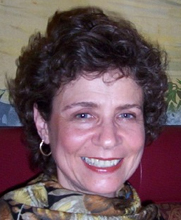


Questions & Answers - June 2003

|
Mary C. Fridley, RN,C is a registered nurse certified in gerontology with more than twenty years in the geriatric health field. She is the owner of Gero-Resources specializing in caregiver, eldercare, and successful aging education and advocacy. Mary is also an author of two caregiver advice columns and contributes articles to various websites. She is available for speaking engagements and would be happy to answer your questions or concerns while maintaining your anonymity.
About Mary
Mary's Column Archives: Caregivers'
Questions & Answers
|
Dear Mary,
My husband is a diabetic of 23 years. Four years ago I began noticing memory problems and trouble with concentration. They were so slight at first that I thought it was just because he was getting older. Three years ago I asked his general physician and kidney doctor about it and both said it was not related to kidney failure. However, at a recent visit to another doctor I was told that there is dementia with kidney failure. I am wondering what other information would be helpful for me to know.
Recently I was talking to a lady in a waiting room and she asked if I had been told about the life expectancy of a diabetic on dialysis. She also asked if I knew about the diarrhea that goes along with it. I hadn’t been told about any of it.
Are these things true? What other things should I know about as a caregiver?
According to the National Institute of Diabetes and Digestive and Kidney Diseases dementia can be a complication of both chronic kidney failure and diabetes. Dementia from kidney failure is the result of damage to the central nervous system, which includes the brain, and people with chronic diabetes are at high risk for vascular (blood vessel) disease leading to vascular dementia. Diarrhea is the result of nerve damage to the digestive system from diabetes but can also be a side effect of medication and organ failure.
Diabetes is considered the leading cause of end stage renal disease. Life expectancy of a diabetic on dialysis is shorter than for someone without diabetes because of cardiovascular complications like heart attack and stroke.
As a caregiver it is in your best interest to become knowledgeable about your husband’s health problems. You need to know what to expect in order to plan for future care and prepare yourself emotionally.
There are some very good organizations dedicated to diabetes and kidney disease education including the American Diabetes Association at www.diabetes.org or 1-800-342-2383, the National Institute of Diabetes and Digestive and Kidney Diseases at www.niddk.nih.gov or 1-800-860-8747, and the National Kidney Foundation at www.kidney.org or 1-800-622-9010. I urge you to make contact as soon as possible.
Dear Mary,
I have been taking care of my elderly parents since 1993. My father has emphysema and is on oxygen 24 hours a day and just had coronary artery by-pass surgery in January. My mother has dementia and their only income is social security. We live together and I have an accounting office in our home.
I had a lady helping out with their care for the past year but can no longer afford her. Now it’s back to just me. I’m so depressed and exhausted all the time, I don’t know how I’ll be able to work enough to pay the bills and care for them too. I have no life and don’t see one for many years.
Please help, I need all the advice I can get.
Call your local Area Agency on Aging and ask for Information and Assistance. They will help you find resources to manage your parents’ care, offer respite solutions, and put you in touch with a support group. If your father is a veteran, the Veterans Administration also has eldercare assistance programs for help in the home. Call the VA Benefits Services at 1-877-222-VETS or reach them through the website www.va.gov. Another source of help may be the Alzheimer’s Association. They, too, have caregiver assistance programs that are based on a sliding scale fee. Contact them at 1-800-272-3900 or www.alz.org.
Dear Mary,
I was never fortunate enough to have taken care of my parents as they died quite suddenly: my father from stroke and my mother from cancer. I miss them terribly and would give anything to have them back. When I hear people talk about the burdens of caregiving I want to scream. They should be thankful their parents are still alive and stop complaining.
Caregivers come from all walks of life. Some are men and women caring for a parent while working and raising a family, others are husbands or wives trying to juggle caregiving tasks with household responsibilities, and some are grandparents “re-parenting” meaning, they are raising grandchildren. Besides household and family responsibilities they have to deal with health, behavior, and financial issues. They make negative decisions everyday and are faced with the paralyzing fear of the unknown. Many times caregivers are responsible for their loved one’s wellbeing at the expense of their own. So, unless you have walked in their shoes please don’t pass judgment.
Email Mary: info@gero-resources.com
Gero-Resources.com
Featured Experts - Main Page
It is illegal to reprint articles, in any format (including emails, websites, etc.), without explicit written permission from the author of this article and / or Empowering Caregivers™
|
|

